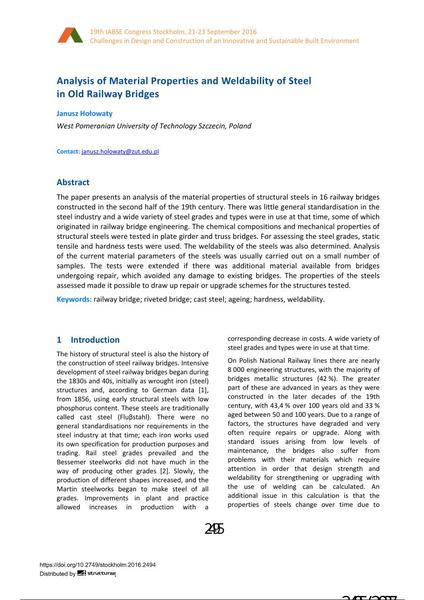Analysis of Material Properties and Weldability of Steel in Old Railway Bridges

|
|
|||||||||||
Détails bibliographiques
| Auteur(s): |
Janusz Holowaty
(West Pomeranian University of Technology Szczecin, Poland)
|
||||
|---|---|---|---|---|---|
| Médium: | papier de conférence | ||||
| Langue(s): | anglais | ||||
| Conférence: | IABSE Congress: Challenges in Design and Construction of an Innovative and Sustainable Built Environment, Stockholm, Sweden, 21-23 September 2016 | ||||
| Publié dans: | IABSE Congress Stockholm, 2016 | ||||
|
|||||
| Page(s): | 2495-2502 | ||||
| Nombre total de pages (du PDF): | 8 | ||||
| Année: | 2016 | ||||
| DOI: | 10.2749/stockholm.2016.2494 | ||||
| Abstrait: |
The paper presents an analysis of the material properties of structural steels in 16 railway bridges constructed in the second half of the 19th century. There was little general standardisation in the steel industry and a wide variety of steel grades and types were in use at that time, some of which originated in railway bridge engineering. The chemical compositions and mechanical properties of structural steels were tested in plate girder and truss bridges. For assessing the steel grades, static tensile and hardness tests were used. The weldability of the steels was also determined. Analysis of the current material parameters of the steels was usually carried out on a small number of samples. The tests were extended if there was additional material available from bridges undergoing repair, which avoided any damage to existing bridges. The properties of the steels assessed made it possible to draw up repair or upgrade schemes for the structures tested. |
||||
| Mots-clé: |
pont ferroviaire
|
||||


